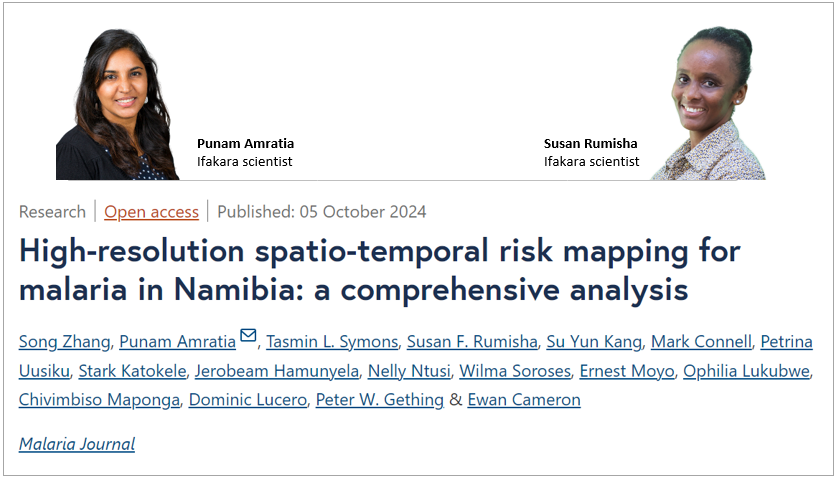
ELIMINATION: Leveraging maps for targeted malaria interventions

Scientists have recommended the use of geospatial techniques for targeted malaria interventions to help countries achieve the Southern Africa Elimination Eight Initiative targets by 2030 more efficiently.
A recent study conducted in Namibia, published on the Malaria Journal and co-authored by Ifakara Health Institute scientists Punam Amratia and Susan Rumisha from the MAP project and their colleagues from Namibia, Australia and the United States, highlights the importance of continuously refining geostatistical methods to support malaria elimination.
"The high-resolution spatial risk maps in this study have been crucial for guiding Namibia's Ministry of Health and Social Services in prioritizing and targeting malaria prevention efforts," the authors note. The researchers believe this approach offers a valuable tool for identifying hotspots and monitoring malaria risk patterns, contributing significantly to national and sub-national elimination goals.
>> Read the publication here.
About MAP
The MAP East Africa Node Support is a four-year project (2023-2027) focused on developing data and modeling platforms for malaria control. It specializes in geospatial analysis to assist malaria policy planning, monitoring, and evaluation across Africa.
Since 2015, various MAP nodes have developed science platforms for risk mapping and reading estimation for malaria. The project combines data analytics, global collaboration, and local partnerships to deliver insights for impactful malaria policy.
To date, MAP has supported over 30 countries through innovative geospatial analytics, research, and development for more effective malaria control strategies. Learn more.
